'Religion and extremism is going to be a big force, a very important force, in Bangladesh's politics.'
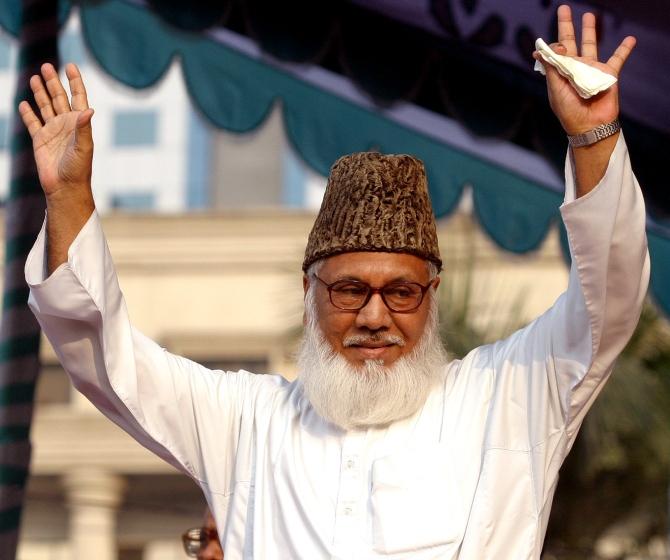
On Wednesday, PTI reported that Bangladesh's interim government revoked a ban on the rightwing Jamaat-e-Islami and its student wing Islami Chhatra Shibir, less than a month after it was outlawed by former prime minister Sheikh Hasina.
'It (lifting the ban) will come under effect immediately,' the home ministry said in a gazette notification, noting that there was no particular evidence against the organisation.
The erstwhile Awami League government led by Hasina had imposed a ban on Jamaat on August 1, 2024, accusing the Islamist party as a 'militant and terrorist' organisation. The government blamed Jamaat's student wing for inciting chaos over a quota system for government jobs.
Welcoming the interim government's decision, the ameer of Bangladesh Jamaat-e-Islami, Shafiqur Rahman, called for an end to the politics of hatred and division in Bangladesh.
"We want the politics of hatred to be buried... it shouldn't rise again. We want the politics of division to be buried," he told journalists.
In the concluding part of his interview with Prasanna D Zore/Rediff.com, Harsh V Pant -- professor of international relations at the King's India Institute at King's College London and vice president at the Observer Research Foundation in New Delhi -- discusses why he fears the situation in Bangladesh could deteriorate further leading to tje rise of the fundamentalist Jamaat-e-Islami that envisages creation of an Islamic State in Bangladesh.
"If there is religious polarisation in Bangladesh, if Hindus are targeted in Bangladesh, it will have an impact on India and Indian politics, where you will have its mirror imaging; it will be reflected in Indian political discourse and there will be demands in India and that India take a harder stance," he says.
- Part 1 of the Interview: Sheikh Hasina's Biggest Blunder

Could the current turmoil in Bangladesh embolden Islamists like the Jamaat-e-Islami to entrench their brand of politics into the mainstream, whenever elections takes place there?
That goes without saying. Whenever you have mainstream political parties (like the Awami League), decaying, withering away, dying, the only organised force left is religion, and it fills the void (created by such cataclysmic political upheavals).
There is no doubt that Jamaat is going to be the biggest beneficiary of this turmoil. The BNP (the Bangladesh Nationalist Party, headed by Khaleda Zia) was already courting Jamaat before elections because it thought that Jamaat and their brand of religious extremism gives it a handle over Hasina.
Hasina and the BNP and Jamaat were pitched against each other as political opponents. There is no doubt that they (the Jamaat-e-Islami) are going to be the beneficiaries. Religion and extremism is going to be a big force, a very important force in the country's politics.
Some in India fear that the Islamists might take over the reins of political power in Bangladesh and begin hounding the Hindu minority there.
How do you see this dynamic playing out in the domestic politics of Bangladesh in the days ahead?
The fear is certainly real in the sense that we have already seen Hindus being targeted. You also see this identification of the Awami League with Hasina and of Hasina with India and India with Hindus.
That targeting has already started. A lot depends now on the interim government and how they perform, what kind of measures they take to bring the country together.
If the interim government is not able to handle and govern and put in place a governance structure quickly, then I certainly think extremist parties will fill the void.
We know from past experience, before Sheikh Hasina came to power, how many of these groups were visible in Bangladesh and how many of these groups were targeting minorities. That goes without saying.
How troublesome could that prove for India, given our long and porous border with our eastern neighbour and our own domestic politics of religious polarisation, which some would say has become the new normal?
The volatility on our borders will certainly go up.
There has been this criticism about why India was supporting Hasina and this and that, but India was supporting Hasina for practical reasons.
We had a very difficult border with Bangladesh that she managed very well. It was in our interest to support her. There is no rocket science here.
We want a government in Bangladesh that supports our interests, and she was willing to bat for India. It goes without saying that the border issue is likely to become more troublesome for India.
Now that we will have a government there that is not in control of the domestic space, how do you expect them to control the border?
One should not be very optimistic that the porous nature of the border is going to be solved or that it is going to be under control by the Bangladeshi government.
If there is religious polarisation in Bangladesh, if Hindus are targeted in Bangladesh, it will have an impact on India and Indian politics, where you will have its mirror imaging; it will be reflected in Indian political discourse and there will be demands in India and that India take a harder stance. That will feed into each other.
In your assessment, could such a scenario present itself in the days ahead? If it does, how prepared is India to handle such religious polarisation on both sides of the border?
It can happen. Again a lot is riding on the next few weeks and months when the interim government takes charge. But it is certainly possible that the situation can deteriorate. It is certainly possible and in any case, you have to plan for the worst.
If you are a policymaker, you will now plan for the worst possible outcome. You can't plan hoping that things would improve. You have to plan hoping that if things get topsy-turvy, what is going to be your response.
I don't think after 15 years of being with Hasina and working with her, India is suddenly going to be in a position to handle it automatically. It will take some time, but the fear would be that if it goes out of hand, then Indian domestic politics will also become a bit more engaged on the subject.
Now that Sheikh Hasina has been in India ever since she fled Bangladesh, how do you see the two neighbours reconciling with each other about the changed ground reality?
It is a difficult situation for India. India has to engage with Bangladesh -- whatever government is there now. India also has to ensure that Sheikh Hasina is protected and is given a safe haven wherever she wants to go.
The next few weeks are going to be difficult for India, but I do think that Sheikh Hasina also is looking for a place away from India, and she'll be working around that. India would also try to help her get to a place where it doesn't create more problems.
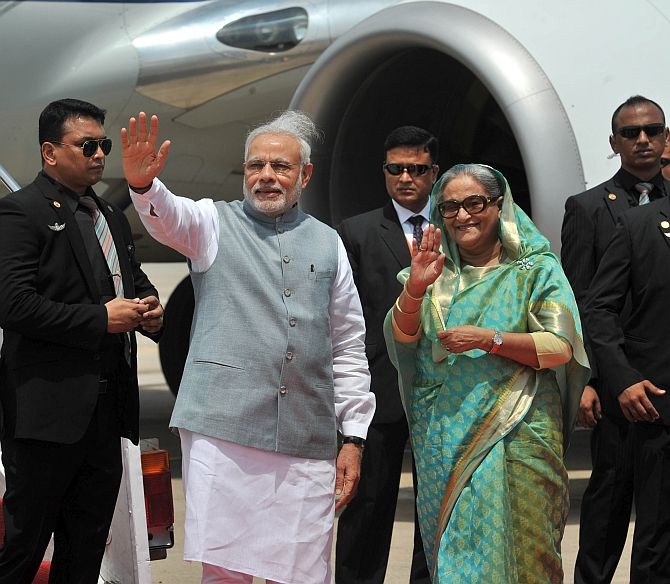
Is India in a position to enable a smooth transition of political power in Bangladesh?
At this point India would be best placed not to overtly try to play any role. Now that the people of Bangladesh have taken a stand, it is for them to decide how they want to proceed ahead.
Now, an interim government has already been formed; it is for the interim government to decide how they want to go. India taking a very proactive stance will not be liked by people of Bangladesh in any case.
India is always blamed as being the real power behind the throne. India should not be involved in any great detail, and India won't because at this point, the most important issue is how do you ensure Bangladesh gets settled in and how do you ensure that Sheikh Hasina gets a safe haven where she is not tortured or where her political opponents do not hold sway to get around to her.
How much does India have to lose in terms of geopolitics, given how strategically India had invested in our relationship with Bangladesh?
This is a serious setback. Eventually, geography has a way of balancing this out; given our relationship, it is very difficult to ignore each other.
But I do think that given what India was doing in Bangladesh, if you look at the connectivity initiatives, if you look at cross border connectivity, if you look at multimodal connectivity, if you look at Indian investments there, India was trying to also help Bangladesh in its own way given how Sheikh Hasina was seen as an important partner.
Now, India and any Indian government would not be willing to invest in Bangladesh so long as there is going to be a trusted partner in Bangladesh once again. That is going to take some time. But it is going to be geopolitically important for India and Bangladesh to work together because if they do not work together, then the costs are very high for both.
A lot of people see the footprint of Pakistan and China in what is happening in Bangladesh today. What role could these two countries have possibly played in destabilising the country?
When there is domestic problem of this kind, certainly external actors want to fish in troubled waters. I don't doubt that there would be actors who would be playing role in what happened in Bangladesh.
Before Sheikh Hasina came to power 15 years back, Pakistan was becoming very powerful, especially its intelligence agency (the Inter-Services Intelligence or the ISI). They were patronising a lot of these Islamist groups in Bangladesh and using them to target India.
When Sheikh Hasina came in, she really went after these groups and marginalised Pakistan in Bangladesh. So certainly there will be an interest in Pakistan to revive that connection and to use the turmoil to their advantage. I do not doubt that.
Ultimately, the challenge came from within, and others only played a tangential role in escalating it.

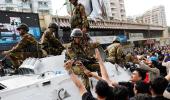






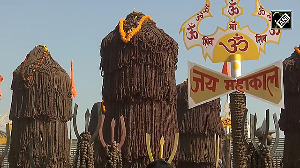
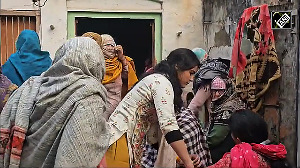
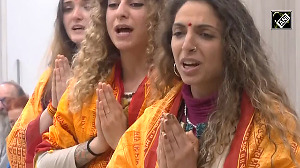
 © 2025
© 2025